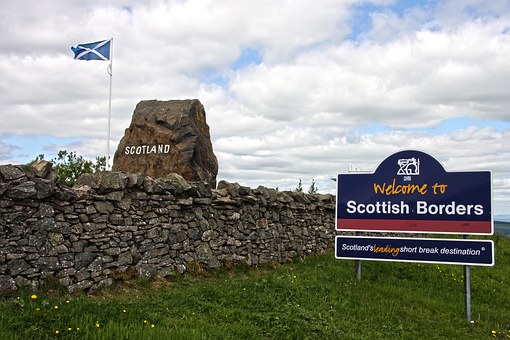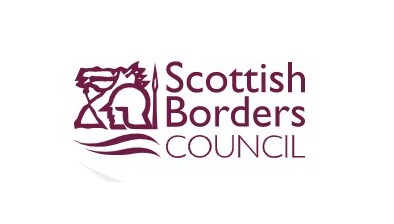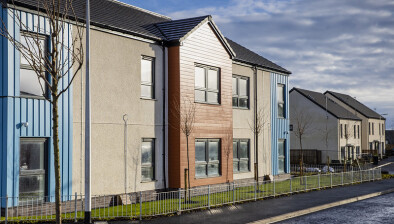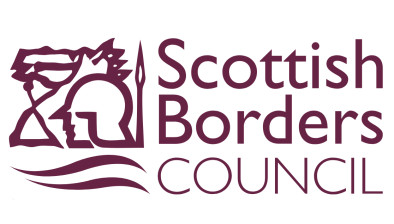Scottish Borders Council dips into reserves to maintain services

Almost £10 million of one-off funding from council reserves will be required to sustain local services and support key projects in the face of unprecedented financial challenges, under proposed financial plans for 2024/25 by Scottish Borders Council.
The local authority said this will give it time to engage with communities over the next 12 months to shape future service plans which will deliver essential permanent savings through the council’s ongoing Transformation Programme.
The draft revenue and capital budget proposals have been developed by a cross-party group of councillors, which is set to continue its work over the next year with a view to identifying savings of at least £5m for 2025/26.
COSLA announced a national cash reduction to local authority funding of £62.7m in revenue and £54.9m in capital. These reductions, with ongoing ring fencing, means the council does not have enough money to deliver all the local services people want to the standards they require.
Despite the £10m from reserves, savings of £4.4m will still be required in 2024/25. Amongst the proposals to achieve this is the removal of one of the two Community Action Teams, an average 10% increase in fees and charges, and the continued transformation of the council to make it more efficient. This will allow the council to maintain the current investment in roads, education and new school buildings and increase the funding available for children and young people who require additional support.
Whilst it has already been agreed to freeze Council Tax in 2024/25, the budget plans include an indicative increase of 10% for 2025/26, followed by 5% increases in the three subsequent years. These will however not be formally set until the annual budget is considered each year as normal.
The indicative increases are in response to significant financial pressures, including inflationary pressures of £6.7m, which leave the council in the stark position of having to both increase Council Tax rates and make permanent service reductions in the future to balance the books. The council currently has one of the lowest Council Tax rates in mainland Scotland.
Councillor Euan Jardine, leader of Scottish Borders Council, said: “Over the past 10 years, Scottish Borders Council has taken over £80m out of its base budget through savings whilst largely protecting public services and communities.
“The sad reality is that with the continued pressure on Council funds, through huge increases in costs, like those being experienced by households, a lack of funding and restrictions on what we can spend some of that funding on, we must now look at some extremely difficult decisions.
“Through the use of almost £10m reserves – our ‘rainy day fund’ to compare it to household budgeting – making £4.4m of savings and the £3.2m from the Scottish Government for a Council Tax freeze, we can almost maintain the status quo for 2024/25. But, beyond that, we have no choice but to significantly increase Council Tax whilst also permanently reducing some services.
“Over the next 12 months, we will be engaging with our residents and communities on the options available and this will inform whether we need to go down the route of a ten per cent Council Tax rise in 2025/26 or could reduce that a little. It really comes down to the trade-offs that Elected Members, communities and residents are prepared to make between the services they want and the contribution they are prepared to pay for that.
“Even with the indicative Council Tax increases it is likely that our Council Tax rates would still be below the Scottish average.”
It is projected that £5m of savings will still need to be made by the council in 2025/26 even with a potential Council Tax increase of 10% in that year. The savings required would increase to £6m if Council Tax was only increased by 8%.
To put that into context, £6m currently funds the total annual costs of all school transport, the council’s homelessness service, the employment support service and this year’s investment into affordable housing.
Councillor Mark Rowley, executive member for service delivery and transformation, said: “This draft budget maintains our commitment to significant infrastructure projects, including new schools and two residential care villages, to investment in our roads and to developing the business infrastructure which will bring new businesses and jobs to the area and allow local firms to grow.
“It will also retain seven additional community police resources, protect the bus network and provide critical funding for key partners which will benefit our communities, including around affordable housing. These are all priorities for our residents, as we’ve seen in the recent survey which attracted more than 2,000 responses.
“This council has an exceptional record of financial management and delivery of savings over a long period, but there is no fat on the bone left. Savings are becoming harder and harder to find and more and more unpalatable, but we risk the long-term sustainability of the council if we do not face up to those issues imminently and make some permanent service reductions.
“After next year’s budget is set at the end of the month we need to have some very frank conversations with our residents about the next steps, including around reducing the property estate we operate from and what services may need to be sacrificed entirely or reduced to protect others.”
The views of over 2,000 local people who completed the budget/Council Plan survey have been fed into the cross-party working group, including the views of more than 800 young people. This has helped to shape both the budget proposals and the latest version of the Council Plan, which will also be discussed at next week’s council meeting.
Councillor Robin Tatler, leader of the Independent group, said: “The response to this year’s budget and Council Plan survey has been great and very helpful in shaping the budget decisions. Putting in place some of the ideas that came forward for areas of investment, or the lowering of charges would be very welcome, but unfortunately the incredibly tough financial position we are facing means that is just not possible.
“In the future, we will have to look very closely at maintaining those services we are required to provide and reviewing the provision of those we don’t have to and are not funded to provide.
“We will maintain our support for Live Borders and the delivery of sport, leisure and cultural services. We will also continue to help the most vulnerable in our communities.”
Councillor Elaine Thornton-Nicol, leader of the SNP and Green group, added: “Across the country, local authorities are having to make incredibly tough decisions, and the time is approaching when we will be in that same position too.
“The proposed budget protects frontline services, even with £4.4m of savings included, but it cannot continue and the views of our residents and communities over the next 12 months will be key to the future shape and delivery of services and Council Tax levels.
“Despite being in opposition, we are committed to working with parties across the political spectrum to minimise the impact of future savings on our communities and to ensuring that they have a real say in what happens next.”
Councillor Euan Robson, leader of the Liberal Democrats group, said: “Some difficult decisions lie ahead for all local councillors given the current financial pressures. Using reserves to plug gaps can only ever be a short term measure and this budget buys time for us to fully engage with Borderers and develop the proposals required to ensure this Council balances the books again in 2025/26 and beyond.”
Draft budget highlights:
- £300m capital investment over the next three years, including into new schools and care facilities
- £21.6m to be spent on roads and transport infrastructure over the next three years
- Funding to maintain a Demand Responsive Travel scheme in Berwickshire, building on the Pingo trial
- Additional funding to manage pressures in social work and social care due to demographic changes and increased need
- Investment into businesses infrastructure to support inward investment and job creation in Tweedbank and Duns
- Increased funding to support Live Borders and other local sport and leisure trusts
- Additional funding to manage significant pressures in out of area care placements for children and young people with additional needs and school transport
- Maintaining funding for additional community police resources, through a single Community Action Team of seven officers
- Continued commitment to making the Council more efficient to support budget savings, including through the use of technology
The draft financial plan will be considered at a meeting of full Council on Thursday 29 February.







